Expert Tips on How to Prepare for a Data Science Job Interview
Meta Description: Master your next data science interview with expert tips, common mistakes to avoid, and the latest 2025 interview questions for a confident performance.If you are scouring the internet for the latest and most relevant data science interview questions in 2025, you are already taking the first step towards landing your next potentially top job in this rapidly developing field. Regardless of whether you are a recent graduate or an experienced analyst in a transition to a data science role, it is all about preparation.
The competition surrounding data science roles has become stronger, in addition to the interview process has become more complex. Employers and hiring committees expect a candidate to have proficiencies not only technically but also in critical thinking, business acumen, and communication promoting a successful outcome for everyone.
In this blog, we will provide our recommendations for your preparation and strategy for your next data science interview, to set you on the right foot right from the start and give you the best chance to make a great first impression.

1. Understand the Interview Structure: Before getting into preparation, you should be aware of the typical format of a data science interview. While companies will differ in interviews, the stages usually involve the following:
- Phone Screen (HR + technical screener).
- Technical Rounds (coding challenges, case studies, modeling exercises).
- Behavioral interview (cultural fit and discussing past projects).
- Onsite or Virtual Panel Interview (take an end-to-end data problem).
Preparing for each of these stages will improve your performance and your confidence.
2. Refresh Core Topics: Preparing with technical interview data science will require you to refresh your understanding of core topics like:
Programming:
- Expertise in programming languages Python or R.
Data structures, algorithms, and OOP. - Libraries: NumPy, Pandas, Scikit-learn, TensorFlow.
Statistics & Probability:
- Hypothesis testing, p-values, confidence intervals.
- A/B Testing, Bayes Theorem.
Probability distributions, simulations.
Machine Learning:
- Supervised vs Unsupervised Learning.
Model selection, and evaluation metrics. - Feature Engineering, Regularization, Cross-Validation.
SQL & Databases:
- Joins, Sub-queries, Common Table Expressions (CTE), Window functions.
- Data cleaning and wrangling of relational databases.
Also Read: Top 10 Data Science Tools Every Beginner Should Learn
3. Show Your Skills on Real-Time Projects: Interviewers will commonly evaluate whether a candidate can use their knowledge to solve a real-world challenge/problem.
Have a few portfolio projects that highlight the below:
- End-to-end pipeline development (i.e. data extraction, data manipulation / cleaning, modeling).
- Feature engineering and model tuning.
- Business problem definition and the ability to estimate ROI.
Be prepared to walk the interviewer through your thought process, decisions, and outcomes using stories to demonstrate your impact, what challenges you faced, and the results.
4. Anticipate Common Questions: Researching the “data science interview questions 2025” will not only help you prepare but also allow you to anticipate trends and current expectations. Below are a few common topics:
Technical Questions:
- “What is the difference between L1 and L2 regularization?”
- “How would you mitigate an imbalanced dataset?”
- “When would you use random forest instead of gradient boosting?”
Business Case Questions:
- “How would you reduce churn for a telecom company?”
- “Design a recommendation engine for an e-commerce site.”
Scenario Based Questions:
- “A model you developed last week for production no longer works. What do you do?”
- “How would you explain a machine learning model to a person who has zero technical background and/or knowledge?”
You should strive to use a structured answer like the STAR method to help you remain succinct and flow through answers.
5. Mock Interviews & Peer Feedback: One of the most intelligent data science interview tips is to do mock interviews. Preparing with peers or mentors benefits:
- Get constructive feedback about communication and technical clarity.
- Detect areas where you tend to babble or over-explain.
- Gain confidence when responding to unexpected questions.
Sites such as Interviewing.io, or Meetup events usually have mock interview setup specific to data science.
6. Go Over Past Experience in Depth: Most candidates fall into the same data science interview traps of not preparing adequately for discussing projects. Your resume is not a summary, but an instrument interviewers use to drill deeper.
Be prepared to discuss:
- Describing model decisions and compromises.
- Metrics for model assessment.
- Business value and collaboration pitfalls.
- Ethical implications and data privacy concerns.
Quantify your impact using numbers and concise results.
7. Stay Current with Trends: Employers are increasingly expecting knowledge of emerging topics. For 2025, staying informed about trends will enhance your answers during interviews:
- LLMs and generative AI applications.
- Responsible and explainable AI (XAI).
- Data-centric AI and prompt engineering.
- Real-time analytics and data.
Reading recent whitepapers, and industry reports, and contributing to open-source projects can show you’re actively involved in the community.
8. Behavior and Communication Preparation: Don’t underrate soft skills. Interviewers want team players who can:
- Work with cross-functional teams.
- Communicate insights to non-technical stakeholders.
- Manage feedback graciously.
Practice answering questions.
9. Avoid These Common Interview Mistakes: Numerous candidates miss out due to these common data science interview blunders:
- Overemphasis on algorithms, ignoring business context.
- Providing generic answers without numbers or outcomes.
- Insufficient domain knowledge in the company’s sector.
- Difficulty explaining advanced models in simple terms.
- Memorizing responses rather than practicing live problem-solving.
Emphasis on showing a problem-solving attitude, curiosity, and flexibility.
10. Last Checklist Before the Interview:
- Go over major technical concepts and equations.
- Refresh your previous projects and resume narratives.
- Practice SQL and Python problems on sites such as LeetCode or HackerRank.
- Learn about the company’s recent data initiatives.
- Prepare intelligent questions to pose to the interviewer.
- Get enough rest the night before.
Final Call on Data Science Job Interview
Doing well in a data science interview isn’t about being the smartest person, but rather preparation, clarity, and a real ability to solve a problem. Regardless if you’re prepping for your first job out of college or vying for a Senior Data Scientist position, the best “formula” is to have your technical, analytical, and communication skills in line with the company’s business objectives.
Ready to land your dream role in data science? Ace your next interview with these proven data science job interview tips and avoid common data science interview mistakes. Start practicing today and build confidence that stands out with expert support from a trusted data science recruiting agency by your side.
Faqs About How to Prepare for a Data Science Job Interview
Q1. What should be the key subjects for a 2025 data science interview?
The key subjects are machine learning, statistics, SQL, Python, business cases, and the basics of LLM.
Q2. How do I best prepare for behavioral questions during a data science interview?
All you need to do is practice and prepare anecdotes from your past projects with an emphasis on teamwork, problem-solving, and learning.
Q3. How long should I study for a data science interview?
Plan 4–6 weeks of focused prep time, based on your current skill set and level of role.
Q4. What are the top platforms to practice data science interview questions?
The top platforms to practice are LeetCode, HackerRank, StrataScratch, Pramp, and Interview Query are great options.
Q5. How to prevent typical data science interview mistakes?
In order to prevent data science interview mistakes steer clear of generalities, too-technical buzzwords, and ignoring business context. Practice communicating clearly.
Q6. Do I need to prepare coding questions in Python alone?
Yes, Python is the most prevalent, but R or even SQL-heavy positions can be exceptions. Default to Python unless specified otherwise.
Q7. What should I ask the interviewer?
Ask about the team’s composition, existing data projects, measures of success, and opportunities for advancement.
Q8. Is it acceptable to answer “I don’t know” in an interview?
Yes, honesty is valued. Reply “I don’t know, but here’s how I would find out” to show curiosity and learning orientation.
Related Article: Your Guide to Starting a Data Science Career






